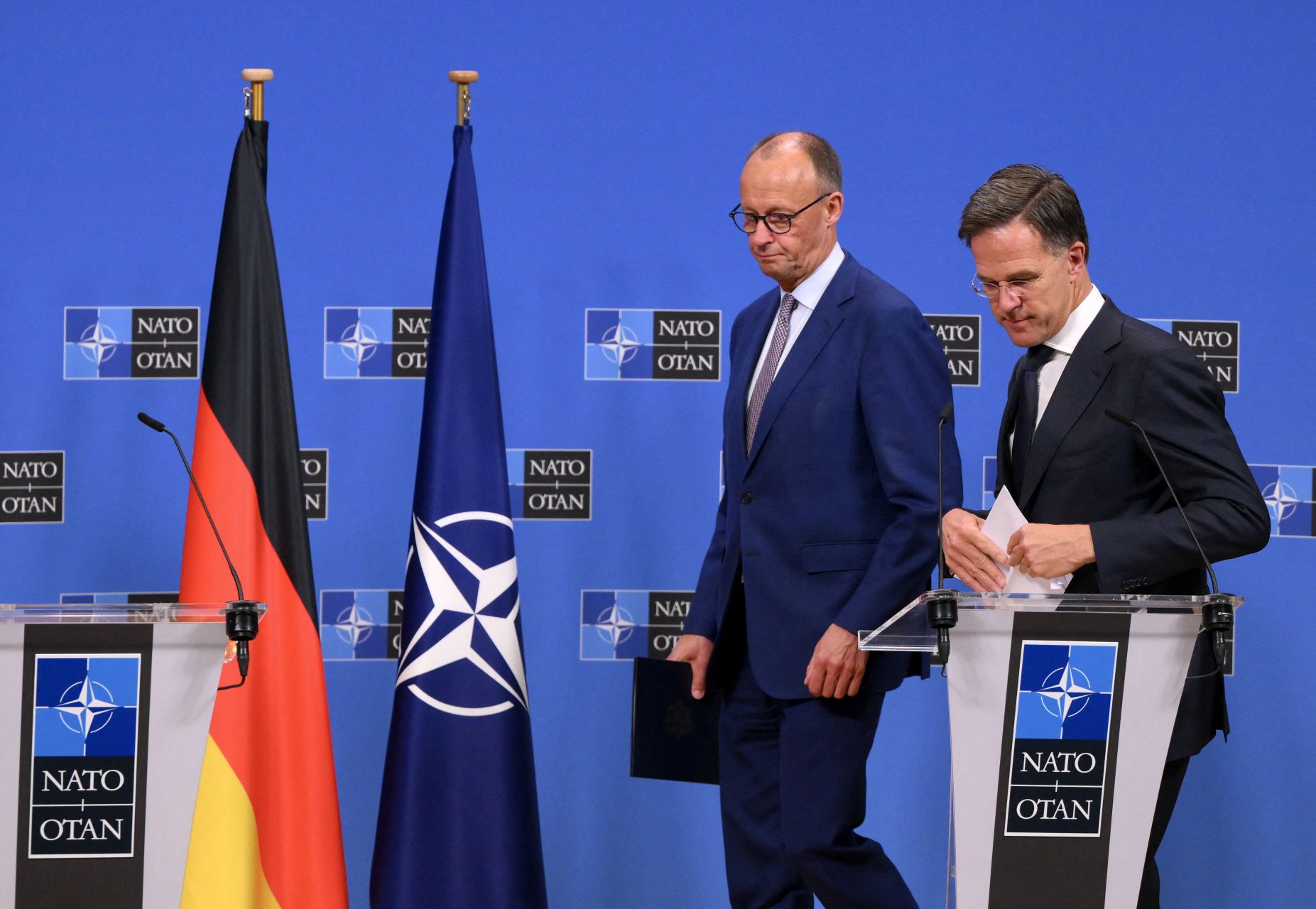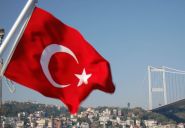- Home
- Middle East
- EU Unity Urged as Germany Enforces Border Controls on Migration

Nato Secretary General Mark Rutte (R) and German Chancellor Friedrich Merz (L) attend a press conference after their bilateral meeting at the NATO headquarters in Brussels on May 9, 2025. ©John THYS / AFP
EU chief Ursula von der Leyen called Friday for migration to be tackled jointly by member states as she hosted new German leader Friedrich Merz, whose government has moved to turn back asylum seekers at its borders.
"Migration is a common European challenge and it needs a common European solution," the commission president told a news conference alongside the German chancellor.
Elected on a pledge to clamp down on migration, the conservative chancellor made one of his first steps in office a unilateral move to reject undocumented migrants including asylum seekers at Germany's borders -- to the notable displeasure of Poland.
Von der Leyen stressed that any such measures "have to be time limited" and "closely coordinated" with both the commission and neighboring countries -- indicating that had so far been the case with Germany.
The German move was a key part of Merz's plans to wrest the initiative away from the anti-immigration Alternative for Germany (AfD), which came second in February's general election.
Merz has said he informed French President Emmanuel Macron and Polish Prime Minister Donald Tusk in advance of the "temporary" measures.
Addressing reporters in Brussels, Merz sought to reassure his partners that "there is no German solo attempt here", vowing to keep acting "in accordance with European law".
"We here in Europe generally have the possibility to implement border controls, and we do make use of that right," he said alongside von der Leyen.
But he also stressed he was "a proponent of the European single market and the Schengen area."
"I want to communicate that to all fellow heads of state and government in Europe who may be worried that this would escalate," said the chancellor.
"We don't want to reduce cross-border traffic. We don't want to impose any difficulties," he added.
Also on Friday, the EU announced it would provide three billion euros ($3.4 billion) to support member states hosting Ukrainian refugees and countries hoping to begin implementing a landmark migration pact struck last year.
AFP
Read more


Comments